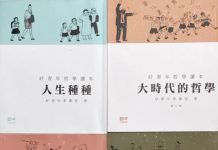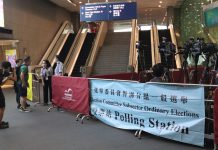The Conservancy Association’s Ken So says many of those who work for horticulture companies in Hong Kong have not undergone proper training. “They haven’t learnt about what modern arboriculture is. They are only people who operate chainsaws,” he says.
So hopes that only people with proper qualifications will be allowed to operate on trees.
There are exams and certificates to ensure the standard of arborists. The exam that Tanya Chan Suk-chong took, issued by the US- based International Society of Arboriculture (ISA) is the most common one taken by arborists in Hong Kong.
But Sammy Au, the president of the China Arborist Association, who was the first person to become a registered arborist in Asia, is critical of the test. He has been an examiner for the ISA exam for over 10 years. Although it is the most common exam to assess the ability of arborists in Hong Kong, he finds it too basic. Those who merely took the exam would encounter difficulties if they practiced in reality.
Candidates only need to answer 144 multiple-choice questions correctly out of 200 in order to pass. The passing mark is 72 out of 100. “Some say attending lectures is not necessary, you could pass the [ISA] exam after only studying for three weeks,” Au says.
In response to this, Au is coming up with an exam specifically for Hong Kong. The first exam will be launched in March next year. It will consist of multiple-choice questions, short questions, assignments and interviews. The language to be used in the exam is Chinese. He hopes the exam can also be taken by people in China and Taiwan as well, as they might not be so familiar with the English language.
If Au’s plan succeeds, there should be more qualified frontline professionals working with Hong Kong’s trees, including in the private sector. But in the end, saving Hong Kong’s trees will require more than just greater numbers of experts and professionals. It requires a culture of conservation, as well as incentives, as Leon Lau Man-chung, a tutor teaching arboriculture courses at the REACH Professional Training Skills Development Centre, points out. “Is there anyone encouraging conservation? It is all about money.”
Lau criticises the government for requiring that people bear the responsibility for conserving trees without providing any subsidies. Instead of forcing private organisations to protect trees by law, Lau suggests starting a fund to help with conservation. He hopes that if the government can lessen the cost of conservation, people will be more motivated and willing to take good care of trees.
Edited by Sandy Ho






































